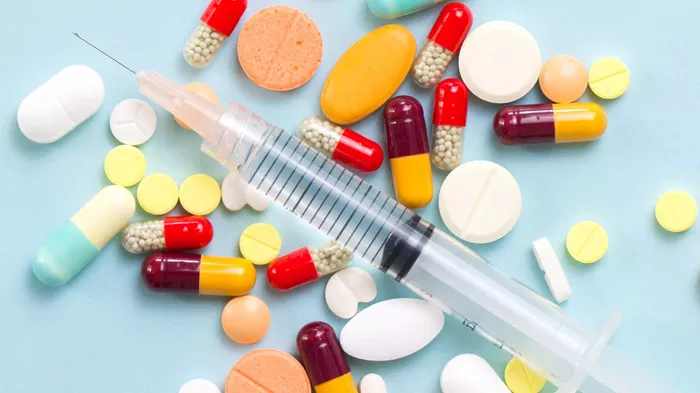A newly developed injectable drug for HIV prevention, lenacapavir, has shown remarkable success in clinical trials. However, despite its efficacy, its high cost could pose significant barriers to accessibility.
Lenacapavir, administered once every six months, has demonstrated an 89% higher effectiveness in preventing HIV compared to daily oral medication in gay, bisexual, and transgender populations. A previous trial also indicated 100% efficacy in cisgender women, adding to the excitement among HIV advocates. If made widely available, experts believe this drug could play a pivotal role in reducing new HIV infections.
“These results are unprecedented,” said Dr. Jared Baeten, senior vice president of virology clinical development at Gilead Sciences, the pharmaceutical company that manufactures lenacapavir. “This could change the course of the HIV epidemic.”
While the clinical trial results are promising, the steep price of lenacapavir raises concerns. Currently approved for treating drug-resistant HIV, the drug’s monthly cost is set at $3,450. Gilead has not yet disclosed whether the price will differ for its use as a pre-exposure prophylaxis (PrEP) to prevent HIV.
Jen Kates, director of global health and HIV policy at the nonpartisan KFF, expressed enthusiasm for the drug’s potential but emphasized the importance of making it accessible. “This news is groundbreaking, but it increases the urgency of ensuring those who need it, both in the U.S. and globally, can actually access it,” Kates said.
Although generic versions of Truvada, an oral PrEP, have been available since 2020 at a reduced cost of $20 per month, lenacapavir’s current pricing raises questions about whether insurance companies and government programs will cover it sufficiently. Without intervention, the drug’s high price tag could hinder its widespread adoption, limiting its potential impact on public health.
Lenacapavir enters a market where other injectable options, like ViiV Healthcare’s Apretude, have struggled to gain traction. Apretude, which requires injections every eight weeks, carries a monthly price of $1,965 but has not seen widespread adoption since its launch in December 2021. In contrast, lenacapavir’s bi-annual dosing could appeal more to those who find daily pills or more frequent injections cumbersome.
Gilead aims to submit lenacapavir for approval as PrEP by the end of the year, meaning it could be available in the U.S. market as early as mid-2025.
Despite the availability of oral PrEP for over a decade, the U.S. has yet to see a substantial reduction in HIV infections similar to other countries. In Australia and the UK, where healthcare systems are more streamlined, PrEP has significantly reduced HIV transmission rates, particularly among gay and bisexual men. However, in the U.S., fragmented healthcare systems have hindered its success.
“The story of PrEP in the U.S. has been one of missed opportunities,” said Amy Killelea, a prominent HIV advocate. Even though Truvada and Descovy, another oral PrEP, are highly effective when taken as prescribed, adherence remains a challenge, particularly among Black and Latino gay men, who have some of the highest rates of HIV but lower uptake of preventive treatments.
Clinical trials of lenacapavir have yielded promising results, showing the drug to be statistically superior to Truvada. Out of more than 2,000 participants who received lenacapavir, only two contracted HIV, compared to nine out of 1,087 who received Truvada. This represented an 89% reduction in HIV transmission for the lenacapavir group.
Given these outcomes, Gilead plans to accelerate the trial, offering participants the option to switch to lenacapavir.
While the drug has proven to be safe and well-tolerated in trials, there is one minor concern: some participants reported small deposits at the injection site, particularly in individuals with low body fat. This side effect may deter some users, especially if it contributes to feelings of stigma.
Experts are cautiously optimistic about lenacapavir’s potential to revolutionize HIV prevention. Dr. Hansel Tookes, a professor of infectious diseases at the University of Miami, voiced his hope that the drug could make a significant difference, especially among Southern gay men of color, a population that has been disproportionately affected by HIV.
“The challenge is getting people to take a daily pill to prevent something they don’t have,” Tookes explained. “An injection every six months is a much easier sell.”
Other experts, like Dr. Boghuma Titanji from Emory University, share this optimism but stress the importance of ensuring that lenacapavir reaches those most in need. “While lenacapavir is a valuable addition to our toolkit, it must be accessible to the populations that would benefit the most, such as young Black and Latino men,” Titanji noted.
As HIV advocates call for broader access to lenacapavir, Gilead has pledged to work with global health organizations to provide the drug at lower costs in lower-income nations. However, the company has yet to clarify how it plans to address pricing for wealthier nations where the HIV burden remains significant.
Tim Horn, director of medication access at NASTAD, a public health nonprofit, echoed this concern. “The benefits of this drug should extend to everyone at risk of HIV, including those facing cost barriers,” Horn said.
While lenacapavir’s clinical success is undeniable, its true impact on the HIV epidemic will depend on how quickly and widely it can be made available at an affordable price.


